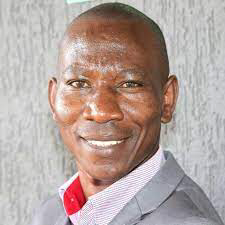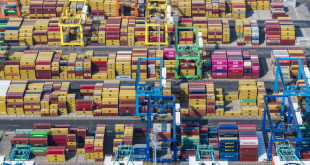Published: January 17,2022

By Adhere Cavince
There is growing apprehension in many African countries regarding Covid-19 vaccines donated by rich countries. Millions of doses shipped to the continent have short shelf-life leading to expiry before deployment; a fact that is now compounding Africa’s inoculations bid against the global health crisis.
Nigeria is reported to have destroyed one million doses of expired Covid-19 vaccines in December 2021. The problem appears to spring from rushed political decisions by rich countries to donate previously hoarded vaccines to developing countries.
Instead of receiving outdated vaccines, poor countries are now turning down the commodities. The United Nations Children’s Fund has revealed that developing countries turned down over 100 million doses of Covid-19 vaccines that were about to expire by end of last year. Some 15 million doses of vaccines donated by European Union were also turned down by poor countries in October and November 2021.
For a region like Africa that has since vaccinated just 8% of the eligible population, turning down vaccines is a painful experience. Away from the regional average, Burundi has only managed to vaccinate a paltry 0.07% its population, the lowest inoculation record in Africa. Collectively, 85% of Africa’s population or about a billion people are yet to receive a single dose of Covid-19 vaccine, according to WHO director-general TedrosAdhanom Ghebreyesus.
Donating near-expired vaccines to Africa has presented three main challenges. First is the false hope that beneficiary countries would increase their vaccination numbers. Many African countries have no capacity to fast distribute and administer vaccines with short lifespans. Secondly, affected African countries are now forced to invest in vaccine waste treatment plants instead of putting their meager resources into additional vaccine purchases. Thirdly, expired vaccines are driving a new form of vaccine apathy in the continent with many people fearing that they could get expired vaccines.
This unfortunate scenario has forced the African Union to issue strong advisory to countries that intend to donate COVID vaccines to the continent. Donors are now encouraged to declare in advance their intension to donate including requisite numbers to be donated. Equally, donations should have a shelf life of not less than three months. These measures are aimed giving African countries enough headroom to distribute and administer the vaccines.
Sending expired vaccines to Africa runs counter to the rhetoric by donor countries of showing solidarity with developing countries in the pandemic fight. When it became clear that a vaccine against the pandemic was in the pipeline, there was palpable hope across the world, and more so in developing countries. With weak health systems and doused economic vitality as a result of the pandemic, low resourced economies looked at a Covid-19 vaccine as a rational and sustainable way out of the pandemic.
Hardly surprising though, it soon emerged that rich economies had pre-ordered billions of doses of the Covid-19 vaccines, leaving little to be purchased by poor countries most of which are located in Africa. Pleas by the affected governments, WHO and other regional organizations such as the African Union for equitable distribution of the commodities were unheeded. Meanwhile the pandemic was increasing in intensity with new waves fueled by more transmissible and deadly variants such as the Delta and Omicron.
The only sustainable way to ensure Africa has access to the vaccines it needs to protect its population is to encourage local production of the commodities in the continent. Instead of backing the WTO led process to grant temporary waiver of intellectual property rights on COVID-19 vaccines, diagnostics, therapeutics, and medical devices, the advanced economies would rather send out of date health supplies to poor countries.
An alternative route for Africa is to consider proposals by countries like China that are already implementing joint vaccines production hubs in the continent. The FOCAC 2021 commitments by China to donate 1 billion doses of COVID-19 vaccines with 400 million doses produced in the continent will not only enhance access to the commodities in Africa but also foster the industrial capacity and health systems strengthening in the continent.
Rapid, equitable and sustainable vaccination is the ultimate antidote against the pandemic. As the Omicron variant spread has proven, only administered vaccines count. Advanced economies should read from the same script with the rest of the world and jointly work to stem the tide of global health crisis. Expired vaccines have no role to play in this endeavour.
The writer is a scholar of international relations.
 Africa -China Review Africa -China Cooperation and Transformation
Africa -China Review Africa -China Cooperation and Transformation
